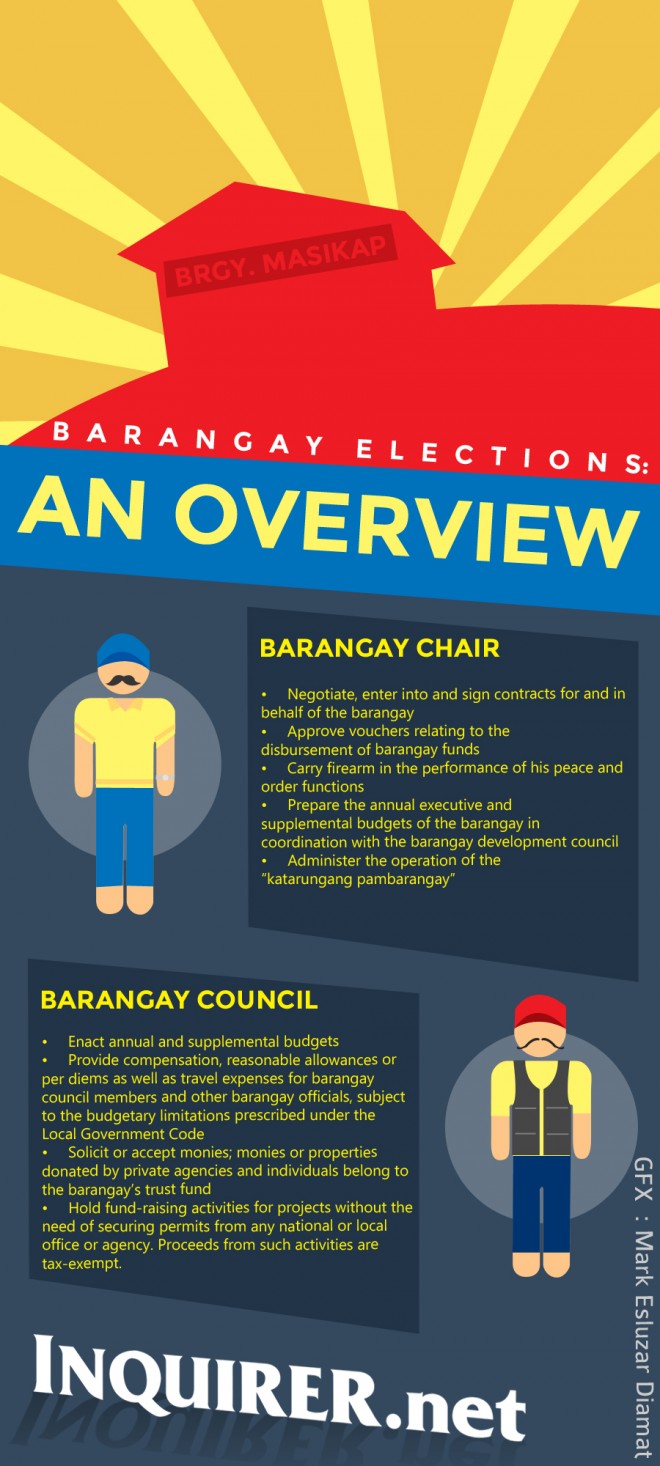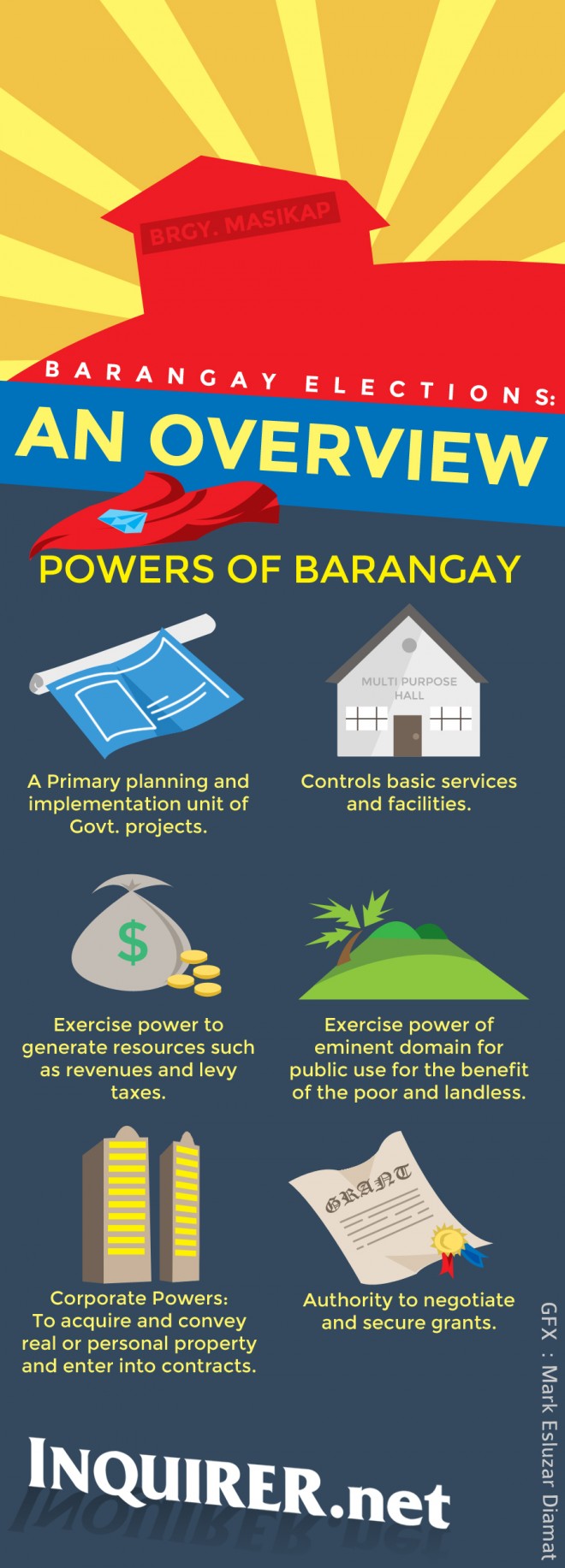Barangay Elections: An Overview
POWERS, DUTIES AND FUNCTIONS
Barangay Chair:
— Negotiate, enter into and sign contracts for and in behalf of the barangay
— Approve vouchers relating to the disbursement of barangay funds
— Carry firearm in the performance of his peace and order functions
Article continues after this advertisement— Prepare the annual executive and supplemental budgets of the barangay in coordination with the barangay development council
Article continues after this advertisement— Administer the operation of the “katarungang pambarangay”
Barangay Council:
— Enact annual and supplemental budgets
— Provide compensation, reasonable allowances or per diems as well as travel expenses for barangay council members and other barangay officials, subject to the budgetary limitations prescribed under the Local Government Code
— Solicit or accept monies; monies or properties donated by private agencies and individuals belong to the barangay’s trust fund
— Hold fund-raising activities for projects without the need of securing permits from any national or local office or agency. Proceeds from such activities are tax-exempt.
POWERS OF BARANGAY
— Serves as the primary planning and implementing unit of government policies, plans, programs, projects and activities
— Controls basic services and facilities: Agricultural support services (planting materials distribution, operation of farm produce collection and buying stations); health and social welfare (barangay health center and day-care center); services and facilities related to general hygiene and sanitation, beautification and solid waste collection; maintenance of barangay justice; maintenance of barangay roads and bridges and water supply systems; infrastructure facilities such as multipurpose hall, multipurpose pavement, plaza, sports center and other similar facilities, etc.
— Exercises power to generate and apply resources: create own sources of revenues and to levy taxes, fees and charges; to have a just share in national taxes (also known as the Internal Revenue Allotment); to acquire, develop, lease real or personal property
— Exercises power of eminent domain for public use, or purpose or welfare for the benefit of the poor and the landless, upon payment of just compensation
— Corporate powers: To acquire and convey real or personal property and to enter into contracts
— Authority to negotiate and secure grants: Negotiate and secure financial grants or donations in kind, in support of the basic services or facilities, from local and foreign assistance agencies without securing clearance or approval from any department, agency or office of the national government of from any higher local government unit
INTERNAL REVENUE ALLOTMENT (IRA)
P302 billion
For fiscal year 2013
P59 billion
For barangays for 2013
P2.5 billion
Received by the top 100 barangays
RICH BARANGAY
P145 million
Total income of Bel-Air, Makati City, in 2012, one of the richest barangays in the country—Compiled by Inquirer Research
Sources: PNP-PIO, Comelec, NSCB, DBM Budget and Management Bureau-G, NSO

